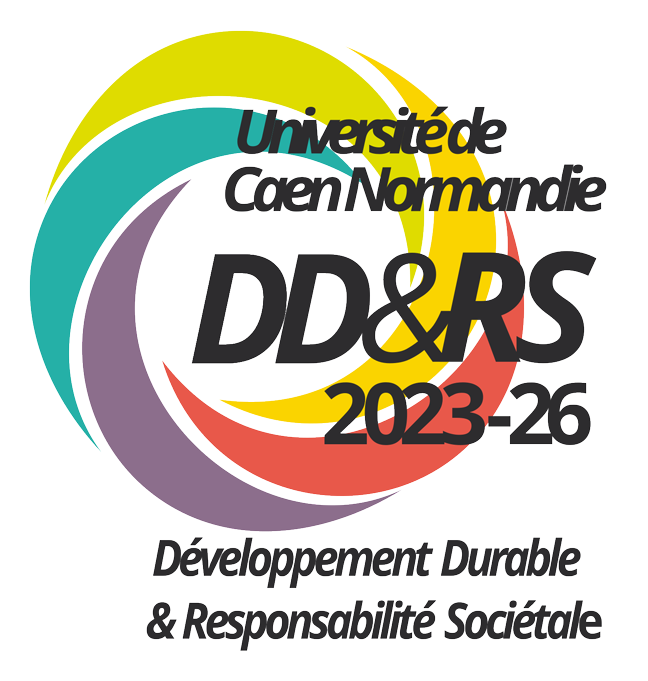UNICAEN commitment
The Campus 30 mission
The main goal of Campus 30, the university’s sustainable development mission, is to develop, monitor and evaluate the university’s sustainable development strategy and its action plan. Through its training courses, research programmes and practices, the university intends to take responsibility and to fully contribute to the changes that are necessary for our society.
A long-standing commitment
The University of Caen Normandie initiated its sustainable development policy in 2013/14, with the Campus 21 mission. At that time, an inventory of existing practices in favour of more sustainable development was carried out, leading to the establishment of an action plan to make progress on the various items of the Plan Vert (Green Plan) (national roadmap for higher education establishments). | Diagnostic Campus 21 (in French)
In November 2020, a new impetus in favour of DD&RS (sustainable development and societal responsibility) was given to develop and monitor an ambitious DD&RS policy for the years to come, with a resolute commitment to ecological, energy, environmental, societal and digital transitions. The Campus 21 mission became the Campus 30 mission, and the Plan Vert was transformed into the DD&RS framework. A diagnosis was carried out to take stock of the actions undertaken and to submit an action plan: many projects have progressed or been completed, and new challenges have emerged. | Diagnostic Campus 30 (in French)
A sustainability label and a highly positive assessment

The University of Caen has just been awarded the Label DD&RS – Développement Durable et Responsabilité Sociale — for 4 years. DD&RS stands for sustainaible development and social responsibility. This label rewards higher education establishments which are committed to the latter principles. To obtain the Label DD&RS, it is necessary to demonstrate that the progress is real, that it is integrated into the operation of the establishment at all levels, and that it is designed to last in the long term.
Ongoing and future projects
Now that the diagnosis is set and the roadmap drawn up, we must keep the momentum of this achievement. To this end, several projects are already underway. Here are the most important ones, but the list is not exhaustive.
Carbon footprint
A complete carbon footprint (Scope 1 to 3) is currently underway. Most of the data has been collected, and the report, together with an action plan to reduce GHG emissions, should be published in the autumn of 2023.
Mobility plan
Similarly, work is underway regarding the university’s mobility plan. An initial survey phase has been carried out and is currently being pursued with work groups at all university sites. This will enable proposals for action to be drawn up and to be submitted to the community during the first half of the year, with a view to publication at the end of the year.
The matrix for sustainable development and social and environmental responsibility
The in-depth diagnosis carried out to obtain the Label DD&RS provides a solid basis to produce a matrix, as expected by the MESR (French Ministry of Higher Education and Research) via its climate and biodiversity plan. A methodology will be drawn up for the start of the project in September 2023.
Waste reduction strategies
By 2027, a large proportion of our university sites will be covered by the special waste collection fee. In order to limit the financial costs that will be generated while reducing our environmental impact, the university will implement an operational waste reduction strategy from 2024 onwards, so that our entire establishment is ready in 2027.
Training students in the challenges of ecological transition
Our ecological transition for sustainable development (TEDS – Transition écologique pour un développement soutenable) must be integrated into the training of all undergraduates by the start of the 2025 academic year at the latest. This will involve identifying existing TEDS teaching resources, setting up a teaching unit comprising volunteer teachers from several disciplines as well as CEMU teaching engineers, and building a component to be inserted into all the school’s degree curricula.

